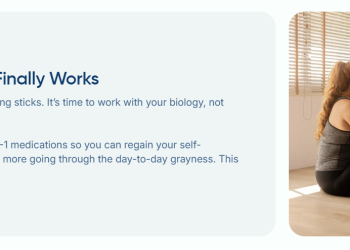Curry: “Growing up, I was undersized and didn’t pass the eye test. In every gym I went to or every team I played on, I was always the smallest. I had that underestimated mindset from the beginning. There were a lot of people telling me what I couldn’t do or be.”
Stephen Curry, four-time NBA champion with the Golden State Warriors, has told Sky Sports that as a young person in sport, he “didn’t pass the eye test” before becoming one of the greatest.

The 35-year-old has become one of the most prominent figures in professional basketball over the last ten years. He holds the highest career free-throw percentage in NBA history (91.0%) and the NBA record for three-pointers made in a regular season with 402 in 2016, surpassing his own previous record of 286.
He won NBA championships in 2015, 2017, 2018, and 2022 and was named NBA MVP in 2015 and 2016. He is a ten-time NBA All-Star. But his path to the top was anything but easy. In fact, as Curry explained to Sky Sports, he wouldn’t have made it there without his mindset in the face of criticism. “It’s really cool to talk about the beginnings of my basketball career,” he said. “Basketball is in my blood. My father [Dell Curry] played in the NBA for 16 years, so there was a bit of internal conflict about whether basketball should be part of the family business. “As I climbed through the ranks and started playing organized basketball at nine years old, I was undersized and didn’t really pass the eye test. “In every gym I went to or every team I played on, I was always the smallest player on the team. “I had that underestimated mindset from the beginning. If I ever got the chance to compete against the best, I knew I could hold my own, but there were many critics coming at my game. “There were a lot of people telling me what I couldn’t do or be. “I had to somehow accept all of that, and practically on every level from nine years old to middle school basketball, to high school basketball, there were many barriers in terms of who I was as a basketball player and what people thought of me. “I carried that underestimated spirit with me consistently, didn’t get many college recruitment letters or scholarship offers from many of the big Division I college basketball schools, and I was really a late bloomer. “It came to the point where I got an offer from Davidson College, a small liberal arts school in North Carolina that had about 1,900 students at the time, and all I needed was a small opportunity and a coach who believed in me. “The rest is history from there. I followed my destiny as a basketball player, developed a great work ethic that I still rely on today. “Now I’ve been in the NBA for 15 years and trying to stay as long as possible, but that underestimated spirit still exists in me and still lives on in me today, and it’s cool that it extends to the game of golf as well.”
Last year, Curry launched the “Underrated Golf” project focusing on fairness, access, and equal opportunity for young golfers who might otherwise never have had the chance to participate in national events.

The Underrated Golf Tour, consisting of four regional stops at some of the most prestigious golf courses in the USA, will kick off its 2024 season in the UK at Walton Heath Golf Course in Tadworth. ‘A Delusional Drive’ When asked where his drive came from to continue pursuing his dream career, Curry says it was something he always felt.
“I had it, but it was validated by the people around me who saw how I behaved,” he added to Sky Sports.
“You might call it a little delusional at times. You could see me as the scrawnier kid trying to defend the best player on the field, trying to compete with competitors who were above me because I felt like I belonged.
“But it was validated by the people around me who said, keep doing what you’re doing, keep believing in yourself, and maintain that attitude at every opportunity you get to play basketball. “I took that with me. The difficult part now is when you’ve had a little bit of success, there’s a temptation to lose that spirit and attitude, and I had to remember where I came from and how far I’ve come to maintain that.

“Seeing the next generation of kids that I can influence and inspire, and being able to help them create opportunities through some of the things I do off the court.
“I think there’s something relatable about the way I play the game. Even when you see me playing against the guys in the NBA, I still look like the smallest guy out there, but I try to play well beyond my size.
“People have been drawn to my style of play and hopefully have been inspired by it.”












Discussion about this post